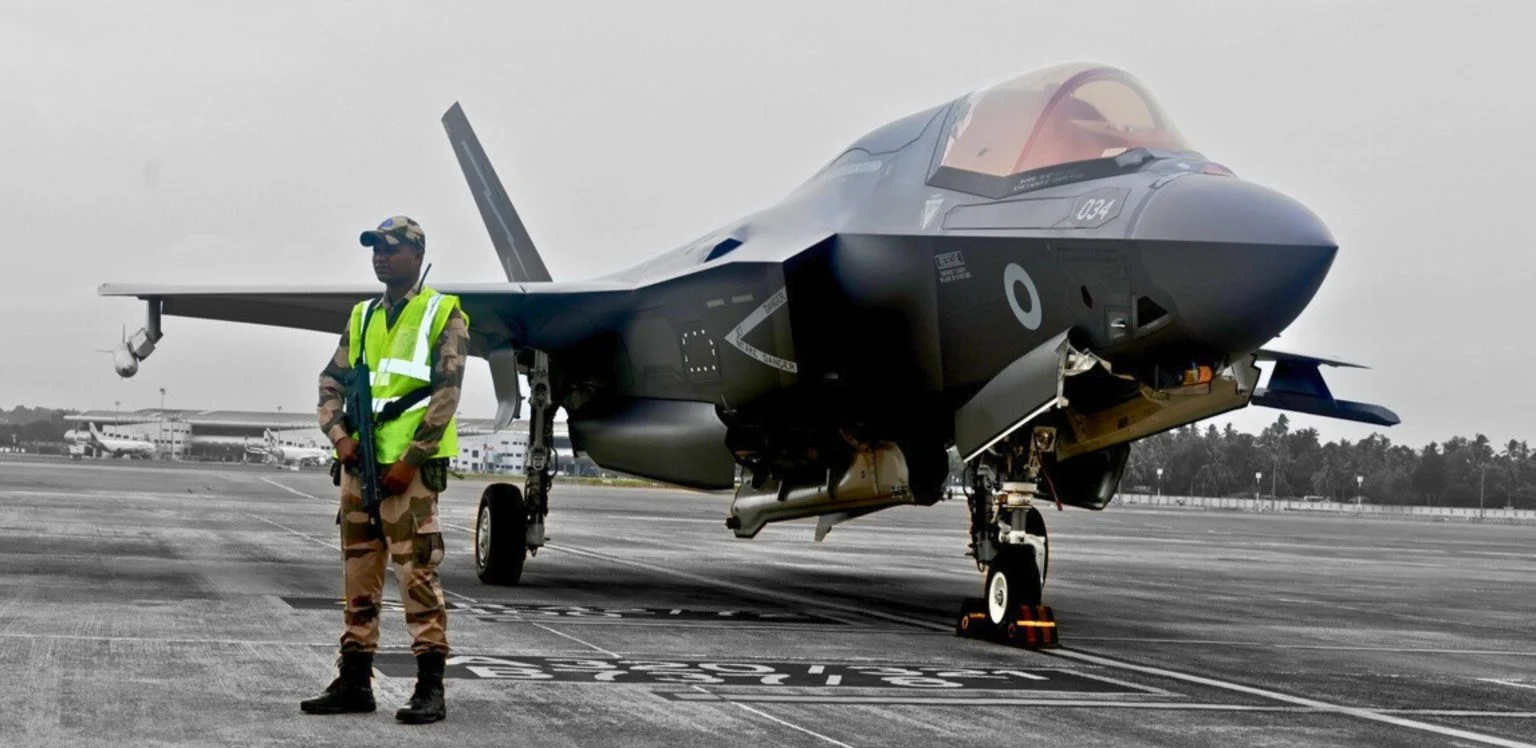The Royal Navy has reportedly declined Air India’s offer to use hangar space for its F-35B Lightning II stealth fighter jet, which has been parked in the open at Kerala’s Thiruvananthapuram International Airport since June 14 following an emergency landing.
The fifth-generation fighter, part of the UK’s HMS Prince of Wales carrier strike group, landed after the pilot cited low fuel. Since then, British aviation engineers have been working to resolve a persistent hydraulic system malfunction that has grounded the aircraft.
According to sources, the Royal Navy’s decision to keep the aircraft outside a hangar stems from heightened concerns over the F-35B’s sensitive and classified technologies. The American-origin fighter jet is equipped with advanced stealth, sensor fusion, and electronic warfare systems, making it one of the most protected military assets in the world.
Security experts believe that parking the aircraft in an Indian civilian hangar may risk exposure of proprietary technologies. The UK’s apprehension reflects standard military protocol regarding the safeguarding of high-value defence assets.
Despite the Royal Navy’s current stance, sources say a final inspection or repair phase might prompt reconsideration of the hangar offer. For now, the jet remains under a tight security cordon, drawing the attention of both local onlookers and global defence watchers.
The aircraft’s presence in Kerala follows recent joint Indo-UK maritime exercises in the Indo-Pacific. While the emergency landing was confirmed by the Indian Air Force, which extended full support, the grounded jet continues to await clearance for rejoining its carrier group once the technical issue is resolved.
The ongoing standoff also highlights broader implications for defence cooperation and logistics between India and its strategic partners, as it navigates the fine balance between assistance and operational confidentiality.













